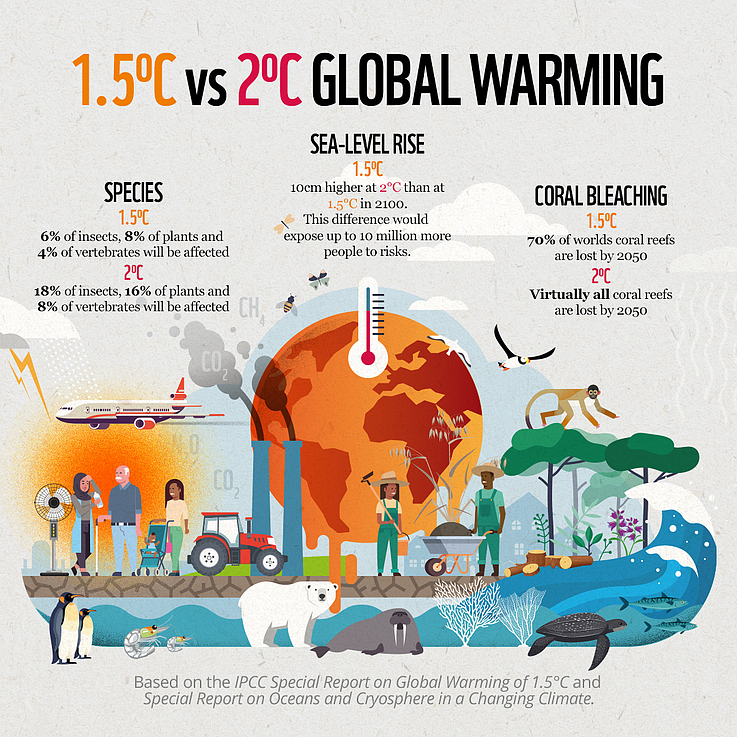 For years, the world has been hearing about the 1.5ºC threshold to prevent the harmful effects of global warming.
For years, the world has been hearing about the 1.5ºC threshold to prevent the harmful effects of global warming.
Recently, from February 2023 to January 2024, we experienced the hottest 12-month period ever recorded. The average global temperature reached 1.52ºC above preindustrial levels, surpassing the 1.5ºC mark.
During this time, the world saw extreme weather events ranging from intense droughts and wildfires to heatwaves, heavy rainfall, and flooding. These conditions were a result of the El Niño cycle, human-induced global warming, and possibly the 2022 eruption of a submarine volcano in Tonga that released tons of heat-trapping water vapor into the atmosphere.
Does crossing 1.5ºC this year mean that the fight against climate change is now hopeless? Not at all. Let's find out why there is still hope.
What Does 1.5ºC Threshold Mean?
 The 1.5ºC threshold was set during the 2015 Paris Agreement as a goal to limit average global temperature increase over the next couple of decades, with 2ºC as the upper limit.
The 1.5ºC threshold was set during the 2015 Paris Agreement as a goal to limit average global temperature increase over the next couple of decades, with 2ºC as the upper limit.
Experts emphasize that exceeding the 1.5ºC threshold in a single year due to natural climate variations does not mean we have crossed the target permanently. Currently, the average temperature is 1.1ºC over preindustrial levels.
Importantly, the 1.5ºC threshold doesn't signify an irreversible point for global warming; rather, it serves as a practical goal for countries to avoid significant damage from extreme weather and heat. Determining the actual "tipping point" is challenging, and it may vary for different environmental elements or systems.
The Urgency For Action
The climate events of the past year are a reminder of the urgency to reduce greenhouse gases to prevent the disastrous effects of climate change.
Scientists predict that the 1.5ºC goal could be surpassed by the early 2030s, perhaps as soon as 2027. To stay below the threshold, emissions would need to be cut by 45% by 2030, a goal that seems nearly impossible.
Rachel Kyte, an advisor for COP28 climate negotiations, warns, "We're going to overshoot and have to come back down to it [1.5ºC]." Even staying below the upper limit of 2ºC seems doubtful, leading to more severe weather disasters, deadly heatwaves, dwindling Arctic sea ice, coral reef decline, crop failures, and other detrimental effects.
Fortunately, climate change is not a lost cause. Going forward, we will need to balance our use of fossil fuels with strategies to reduce emissions. Numerous tools and technologies exist to curb emissions, and they are constantly becoming more affordable and efficient.
Every single advancement matters; as Kyte adds, "Every fraction of a degree of warming avoided is beneficial over the long term while transitioning to cleaner energy and reducing pollution can yield immediate benefits." The world and its leaders must accelerate their efforts.
Sources: VOX, Washington Post, UN, Transportation.gov






